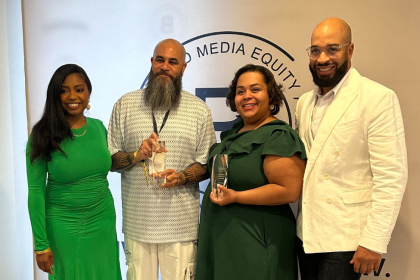
As a success strategist, my joy is advocating and partnering with people who seek to achieve meaningful goals. Together, we push strategy and action until it yields the desired outcome? As clients take their results in their own hands, they quickly embrace what I already know — they are truly their greatest asset! Some naturally move in that understanding, others embrace it as a new way of seeing themselves. Then there are those who must first wrestle with the reality that they’ve been functioning as the opposite — a personal liability to their own success. Which one are you? Here are seven quick questions that can help you identify if the real problem is you. If indeed you are, recognizing it is the first step in ensuring a different reality.
Question 1. Do you avoid or refuse accountability? Who can tell you the truth? Who can call you on the carpet and challenge your decisions, rationale, or commitment? Who can get to see your vulnerabilities and give you guidance and direction. If the answer is “no one,” you may be on a path of potential derailment of which you’re not even aware. Accountability is directly correlated with success, so if you’re willing to be accountable to no one, you’ve actually decided to only hear and be led by your own voice — the short sightedness of this can only serve to work against you over time because it positions you to be an obstacle to your own success.
Question 2. Do you put little value on finishing? Successful people are finishers. Yes, at times they may choose to let something go, turn a corner, or even shift directions, but their pattern of choice is that of finishing what they start and finishing well. No matter the justification, if your track record is one of not making it over the finish line, you may be an obstacle to your own success.
Question 3. Is it always someone else’s fault? If your go to line is “it’s not my fault” or blaming and pointing the finger is your go to response instead of “What do I need to take responsibility for,” you may be an obstacle to your own success. Taking ownership is a position of power, however, if everything is seen as happening to you, you’ve accepted the role of victim. On the contrary, if you consistently blame others, you may just be the one doing the victimizing. Either way, it’s an obstacle to your own success.
Question 4. Do you exhibit saboteur like tendencies? When you seem to be on a good path, do you let fear or insecurity convince you to mess things up before it gets messed up? Do you feel undeserving of good things and find ways to exhibit actions that assure good things? Don’t stay that way. If you find yourself predetermining negative outcomes then do what’s necessary to fulfill that expectation, you may be an obstacle to your own success.
Question 5. Are you good friends with passivity? Here’s the thing, there’s no such thing as true passivity because contrary to popular belief, doing nothing is still a decision to do something. When you decide to be passive, what you’ve really done is decided to give up your opportunity to actively affect the outcome with your input. Therefore, even a forfeit is an active decision. For example, a decision to not raise your children doesn’t stop them from growing, it just means you’ve forfeited or relinquished the power of your influence. If passivity or the illusion of not making a decision is your usual mode of operation, you may be an obstacle to your own success.
Question 6. Do you desire respect without responsibility? Part of the reason successful people are also respected is based on their span of responsibility. Responsibility to their communities, customers, employees, families, etc., is often what makes them worthy of respect. Now here’s a question, how many successful people do you know with little to no responsibility? Exactly. So, if commitment and responsibility are things you seek to get away from at all costs, you may be an obstacle to your own success.
Question 7. Do you think success comes before work? Recently, I heard master musician Quincy Jones say the “only time you’ll ever see success come before work is in the dictionary.” Ten points to Mr. Jones for that piece of wisdom. Being successful and maintaining success in your spiritual, professional, and personal life all takes work. For the most part, what you put in is a good predictor of what you’ll get out. If you’re unwilling to accept words and phrases like cultivate, resilience, mastery, stretch, grow, learn, pay dues, get back up again, press toward the mark, and failure is not an option as part of your success journey, you may be…(the biggest obstacle).
www.askdrnicole.com

















